The Beginner’s Guide To Stephen King Adaptations
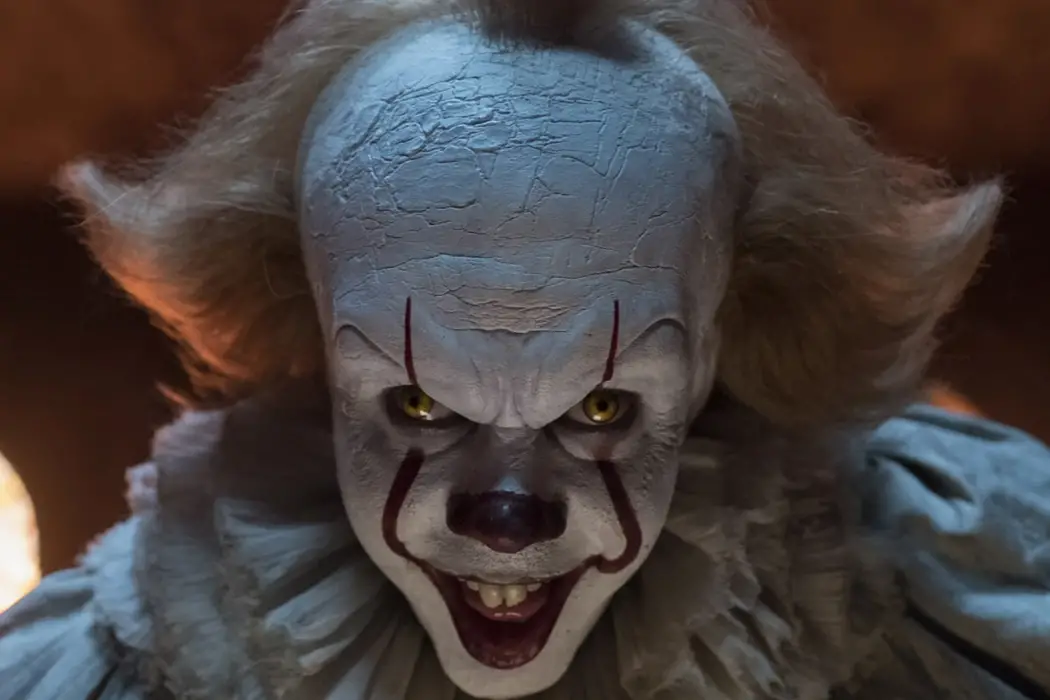
Kristy Strouse is the Owner/Editor in Chief of Film Inquiry,…
Stephen King is one of the most inventive writers of all time. Known for his delves into horror, he’s also had a firm stance in fantasy/science fiction, and regardless of genre, had significantly dramatic narratives. Among his countless best-sellers, he’s had several books adapted into feature films, TV movies, and television series. Some of them stick close to the source material, while others use it as a stepping stone to develop their own perspective. Many have been critically acclaimed, nominated for awards, and some… well, they weren’t quite so well received.
As a huge fan myself, and a resident of the state of Maine (where he’s like… our hero) I’m always excited when another adaptation comes to fruition. Which ones are worth it? Which ones should you avoid? I’m here to help. With Hulu’s Castle Rock having premiered last month it seemed fitting to take some time, turn off the lights, and contemplate all the ways this genius has impacted film and TV with his literary escapades.
Through novels, novellas and short stories, he’s managed to work out a way to make almost everything creepy and resonating and has brought the supernatural to several unsuspecting places. For instance: a car, a truck, a cat, and a dog. Should these be scary? Probably not. This king of horror has also been able to convey insanity and murder in a way that is innately believable, and therefore terrifying. Aliens, spirits, and strange black balls (I’m thinking of you Langoliers!) there’s so much imagination, and so many opportunities for adapting, that in the last thirty-nine years, there have been over 90 adaptations (including sequels etc).
Yes, really.
Despite his reign of the mystical and horrifying, Stephen King is also an incredible talent, able to create real characters with dynamic stories. He is sometimes referenced solely as a writer of the dark expanses, but that’s not the case.
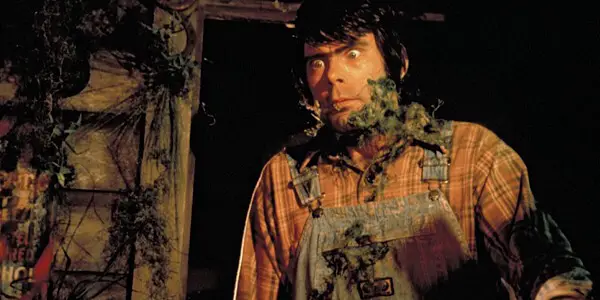
I’ve got to point out that there are so many adaptations, I’m not going to cover them all, but if you’re a fan of Stephen King, it might be worth investigating yourself. If you are – it’s especially imperative that you check out their visual counterparts. Beware from someone who has seen almost all of them: it’s a long way down, and there’s a lot to get lost in.
Happy hunting.
The Darabont Trio
Frank Darabont (among many other frequent collaborators) has done three Stephen King adaptations. Three, in my opinion, that are some of the best film versions there are. It only made sense to start here.
The Shawshank Redemption “Get busy living, or get busy dying.”
This seems like a fair place to start considering how beloved this film is. I’ve heard more people list it in their favorite films than any other. The reason? It’s an excellent film. Its inspiration comes from King’s novella: Rita Hayworth and the Shawshank Redemption, and Frank Darabont masterfully brings it to the silver screen. The moving performances by Morgan Freeman and Tim Robbins make this prison story rise above normality, and the story at the heart – of friendship, and the resiliency of human spirit – makes you stand up and cheer by the end. Some have referred to it as overrated, but I find it difficult for anyone to watch this movie and not feel something.
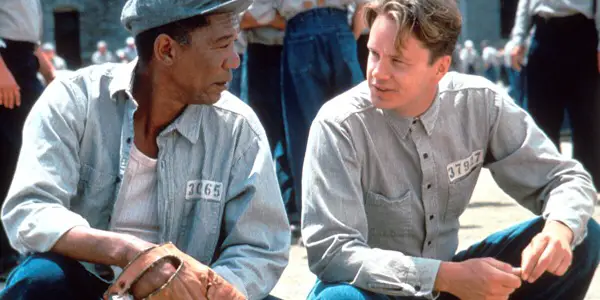
The Green Mile “You can’t hide what’s in your heart.”
This Oscar nominee for best picture starred Tom Hanks as the prison guard of death row inmates in the 1930’s south. Another complex mix of the fantastical and humanity, King nimbly gives us a book that manages to encompass the miracles of life, while not forgetting to give credence to the most horrendous parts of man. Michael Clarke Duncan stars as John Coffey, and at times is downright heartbreaking. Darabont‘s second King collaboration is a slow burn, and both the movie and novel (originally released in six volumes) are lengthy, but if you can find it in your heart to forgive its run-time, The Green Mile is magical realism at its best.
The Mist “David, there’s nothing out there. Nothing in the mist.” — “What if you’re wrong?” — “Then, I guess… the joke will be on me after all.”
Despite some fans being frustrated by the ending change (and oh – what a shocker it was), The Mist was another well-executed adaptation. Based on the novella, this transformation featured Thomas Jane (another frequent King contributor) as our lead, a father who will do anything to protect his son, and included a great ensemble of characters, making up a group of grocery store patrons. When the mysterious mist comes with sinister creatures inside, nobody is safe, and what makes the story elevated from general monster fair is the way this particular group deals with the horror. Fear can do a lot to people.
Crazy, Scary, Murderous
The Shining “Wendy, Am not going to hurt you I just want to smash your brains in.”
Stanley Kubrick’s The Shining is one of the best horror films of all time (in my opinion). However, the book is also one of my favorites, and the two have a difficult time snuggling up together. In the end, I have to consider them separately for them both to survive, and they both deserve to be remembered.
The film definitely branches away from the source material. One such change is the temperament of Jack Torrance. While Nicholson gives an unforgettable performance as his character slips into madness, in the novel there are variances. In the novel, Jack is tormented, and he’s by no means kind to his family, however, he seems more loving, and more regretful, especially by the end where he saves his family at the cost of his life – rather than the freezing maze in the movie (which also isn’t in the novel) where he meets his end. Some of those other alterations are his weapon of choice (ax instead of croquet mallet), Dick Hallorann’s fate, and the lack of divulging on the hotel’s history.
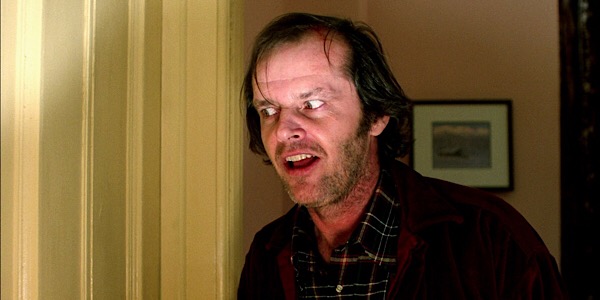
There was also a mini-series starring Steven Weber and Rebecca De Mornay, in three parts, that was a lot closer to the book, but it lacked the creepy factor that the previous rendition mastered. Still, if you’re looking for that, seek the miniseries, because it’s got plenty to appreciate. Just don’t expect Kubrick’s vision and King’s to be on the same wave length. In the novel (and subsequently the miniseries), there is more of his progression as the malevolence of the hotel feeds on his every weakness and fear until he’s completely unhinged. With more time to engage these story-lines the miniseries provides a deeper understanding of The Shining. As a story that encapsulates the panic that comes with cabin fever, over tedious months in the mountains of Colorado, the longer length of this adaptation helps to portray that more, but it’s not a completely symbiotic version.
This isn’t a knock on Jack Nicholson who gives an incredible performance, or Stanley Kubrick’s twisted take. Don’t get me wrong – I love The Shining. I think it’s a genuinely eerie, resonating picture. This is a quality film that doesn’t lose its ability to stun, no matter how many times you see it, and that doesn’t seem to age. I specifically love the score, the repeated color schemes and shapes around the hotel, and of course – the epic Nicholson lines. What makes the novel one of my favorites is King’s ability to get inside insanity, making Jack Torrance’s unraveling all that much sinister. Especially since, there’s an evil making him worse for wear.
Carrie “They’re all gonna laugh at you.”
With Carrie, we had a challenge – can this translate? Can this lonely, bullied and afflicted young girl who grows into a ball of powerful rage really be portrayed? The answer was yes, and since the original adaptation, it has been remade (starring Chloe Moretz-Grace) and had sequels. But the original, with Sissy Spacek, is by far the best. Brian De Palma directs, and Piper Laurie (as Carrie’s mother and for which she received an Oscar nomination) gives a chilling portrayal. This is King’s first novel from 1974, and I think it’s fair to say that this adaptation made it clear that these stories were meant to be seen too. Another classic horror that is as shocking as it is haunting, grounded with a hypnotic score by Pino Donaggio, that gives us an unsettling study of abuse.
Misery “I’m your number one fan. There’s nothing to worry about. You’re going to be just fine. I will take good care of you. I’m your number one fan.”
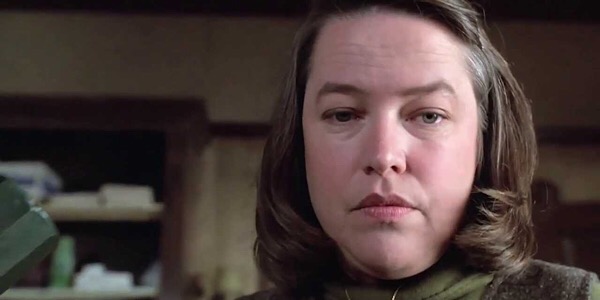
When you hear the description for Misery, you might not expect Rob Reiner to be attached to it (see Stand By Me below), but, as it turns out, he was the perfect choice to bring this suspense thriller to life. Based on the novel from 1987, Misery follows writer Paul Sheldon (James Caan) as he’s saved (but not saved) by his number one fan, Annie Wilkes (Kathy Bates).
This psychological tormentor brings us both sides of the fan-coin, the happy-go-lucky- I’d do anything for you Annie, and the dangerously obsessed, I’d-do anything to keep you. Bates strums that thin line in such a way that makes her one of the most memorable villains in King’s arsenal, and that’s saying something. This confined thriller is dark, with real emotional weight that makes it a truly tense experience.
Children, Children, Children
Whether it be a child fighting off a local werewolf in Silver Bullet (based on the novella Cycle of the Werewolf), a child’s death being the catalyst for several bad decisions in Pet Sematary, young Drew Barrymore with a penchant for fire in Firestarter, or the dreaded murderous cult of children in Children of the Corn, kids are a frequent part of King’s stories. Some fair better than others, but one certainty: they are always equally engaging.
While I can’t deny the entertainment value of watching Corey Haim and Gary Busey in Silver Bullet, or the various social and religious issues alive in Children of the Corn, there are a few that I feel are the worthiest of a watch that focus on the power of children.
Stand By Me “I never had any friends later on like the ones I had when I was twelve. Jesus, does anyone?”
Rob Reiner’s Stand By Me is an iconic look at adolescence. It not only captures friendship and self-discovery, but it’s also a poignant film ripe with nostalgia. As four boys who go looking for a dead body (based on the novella The Body) River Phoenix, Will Wheaton, Jerry O’Connell and Corey Feldman fill this movie with organic humor, child-like wonder, and genuine depth. It’s one of the best coming of age movies there is, and its best-adapted screenplay nomination is well-earned.
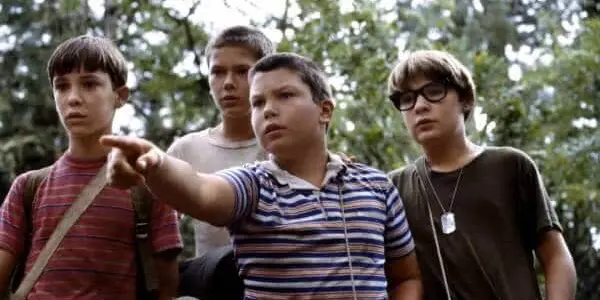
IT “Oh! Well, I’m Pennywise, the dancing clown.”- “Hiya Georgie!”
In my experience, the most common King book/film is It. Ever heard someone say, “IT ruined clowns for me when I was younger”? Exactly.
The original adaptation came in 1990, and while it was a television movie with significant cheese (let’s be honest), it was still terrifying. Part of the reason is because It, an entity that can transform into what you fear the most, King’s creation, is a brilliant idea. It makes each scare personal to the character, because we’re all terrified of something. It also uses children in a way that makes it stand out even more: adults forget about IT, so kids are specifically targeted. The other, in my opinion, reason for It being memorable is Tim Curry as Pennywise the clown.
There is a lot left out of the original adaptation, but the book is also really dark. There’s a lot that probably should be left out. I don’t mind the 90’s feel (I’m kind of perpetually stuck in the 90’s though) and I think there’s a certain charm to its corniness, but I do wish there was more. This is a long story with a lot of moving intricate parts, and some details left out didn’t need to be.
In Andy Muschietti’s remake, IT gets a darker, more modern, and definitely R-rated upgrade. With the remake, we’ll get two separate parts, one when the cast is younger and the next one – 27 years later – when the “Loser’s Club” is older. There’s more connection to the novels with this rendition, and (with the change) it allows us to have the sparkling 80’s as a backdrop this time, which nails the quintessential growing pains kids face while also capitalizing on the dire stakes. Bill Skaargard’s Pennywise is more digitally rendered, but equally eerie. This is a step up in terms of its predecessor, but the little girl in me will never fully be able to shake the original adaptation.
Part two has signed on Jessica Chastain, Bill Hader, James Ransone, Jay Ryan, Isaiah Mustafa and James Mcavoy for our grownups – yes please!
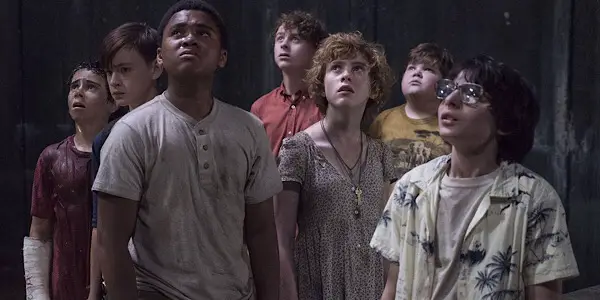
Salem’s Lot “You’ll enjoy Mr. Barlow. And he’ll enjoy you.”
This is another iconic novel from 1975 that got the double treatment (or rather triple). The first was a miniseries in 1979, directed by Tobe Hooper featuring David Soul and James Mason with a sequel in 1987 (A Return to Salem’s Lot).
There was also another mini-series in 2005 with Rob Lowe as the lead, Ben Mears, a writer who returns to his home town and discovers it’s being taken over by vampires. Critically, I have to say the original is a better adaptation, with more believability and genuine eeriness. However, the more modern update is still an exercise in vampire/haunted house sub-genre lore, with enough narrative dissonance to keep you diverted through the night.
Salem’s Lot, King’s second novel, is far superior to any of the adaptations that came out of it. I think this is another that could do with a R-rating and a contemporary upgrade. Still, each of these versions have moments of stimulus.
You Might Have Missed, But You Shouldn’t:
Dolores Claiborne “Sometimes, Dolores… sometimes, you have to be a high-riding bitch to survive. Sometimes, being a bitch is all a woman has to hang onto.”
I feel like Dolores Claiborne often gets overlooked, which is a shame, because it’s truly a great book and film. Kathy Bate’s gives one of her best performances (other than Misery) as the mouthy, stubborn Dolores, and Jennifer Jason Leigh as her estranged daughter. When Delores Claiborne is arrested for murdering the woman she cares for, her daughter is forced to come back home. Their relationship is splintered, and we know their past isn’t a pleasant one, but the whole film is like a big jigsaw, as we learn the truth about what’s happened. It is whirring with emotion and real-life terrors, and this female led film is a gem worth uncovering if you haven’t yet.
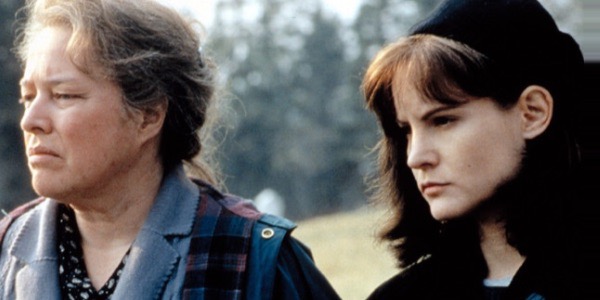
Hearts in Atlantis “We’re all time’s captives, hostages to eternity.”
Hearts in Atlantis is partially adapted from a collection consisting of two novellas and three short stories. There’s a lot removed from the film (like the connection to The Dark Tower), but what became of the adaptation is still an intriguing piece of work. This 2001 feature starred Anthony Hopkins (he’s always amazing though, isn’t he?) in a subtle performance as the mysterious tenant of Anton Yelchin’s mother. As the two spend time together we learn pieces of his strange history, along with uncovering his psychic powers (and learning about the Low Men). If you haven’t seen it, this might sound confusing, but just know – you might not fully understand after watching the film, but that’s part of the appeal. It’s a heartfelt connection, a genuinely intriguing plot and a great combination of acting power. While there are some tonal complaints with Hearts, it’s a movie that has elements of magic, but is also resplendent in its ability to capture the meaningful relationships we covet in our lives.
Apt Pupil “You have no idea what I can do.”
Apt Pupil is incredibly sneaky. It manages to worm its way into you like a disease, festering and itching, and it’s a disturbing film. Adapted from the novella Different Seasons, Todd Bowden (Brad Renfro) discovers that Kurt Dussander (Sir Ian Mckellen), a local man in his small suburban town, is actually a Nazi. To satisfy his own sick curiosity, he blackmails him into telling his stories of his exploits, and thus begins them down an unexpected path. It’s really a tale about evil in its various forms. While the adaptation seems to pull its punches a bit, and change some third act specifics, the film is working, seeking out for Mckellen alone.
Storm of The Century “Born in sin – come on in. Born in lust, turn to dust.”
Storm of The Century wasn’t actually adapted, rather King wrote the original teleplay specifically for its television air, but I feel it’s a worthy addition to speak of. Storm is about an island in Maine that’s engulfed in one of the worst storms they’ve ever had. Turns out, it’s not only a storm, but it’s Andre Linoge, a meticulously deviant supernatural force who will leave the towns people alone if he’s given “what he wants.”
What’s he want? Will he go away? Aired in parts, the story plays out in sections, keeping its finger in your pulse the whole time. With each new discovery, you get stuck in the thick of it. Linoge is another favorite villain of mine, and the people of Little Tall Island, all with their own wicked secrets, are exposed with just the right amount of fear and morality. There’s more than meets the eye with Storm of The Century.
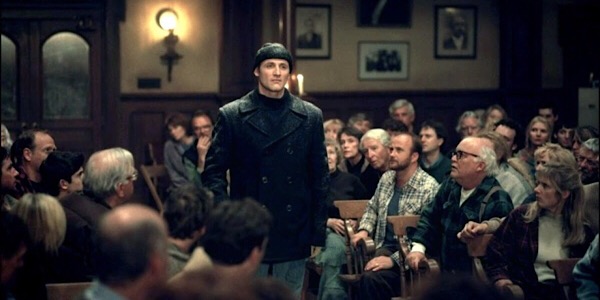
1922 “In the end, we all get caught.”
Another Tom Jane connection, Netflix’s 1922 (based on his short story) is fairly new, having premiered last year, and in comparison to many it’s small, but it’s mighty. The story follows a father who kills his wife, and the tremendous guilt that riddles his life afterwards. This is a movie worth seeking out, filled with great performances, a tight script, and a lingering sensation of dread. You can check out my full review here.
Gerald’s Game “The people who were supposed to protect you from the monsters turned out to be monsters themselves.”
Another more recent Netflix addition, Gerald’s Game is an uncomfortable endeavor. After her husband dies in the middle of their sexual encounter, Jessie Burlingame (Carla Gugino) is left cuffed to the bed in a remote home by the lake. The doors open, there’s a hungry and wild dog loose, and there may or may not be a strange man in the corner. Through conversations with her dead husband, and to herself, Gerald’s Game is a one-woman journey of survival, and it’s a bitch.
1408 “Even if you leave this room, you can never leave this room!”
1408 manages to take a short story and make it into something genuinely eerie. Since the film mostly revolves around Mike Enslin (John Cusack), the skeptic writer who investigates supposed haunted locations, his performance is integral. Luckily, Cusack does a fantastic job, and with the use of subtle ghostly reminders, 1408 is a scary and nail-biting adaptation of King‘s short story.
Good Fun, Not Always Perfect Execution
Dreamcatcher “Sometimes we have to kill, but our real job is to save lives.”
In my experience, Dreamcatcher (adapted from the 2001 novel) has consistently been mentioned as one of those King adaptations that you can’t help but enjoy, even when it’s downright horrible. I’m of a similar mind. There’s a lot wrong here, including Morgan Freeman’s horrendous eyebrows, but what’s right is engaging enough to keep this from being a total flop.
The fact that the main crew, a group of men who as kids were given special powers, consisted of Tom Jane, Jason Lee, Damian Lewis and Timothy Olyphant, definitely helped. It’s wacky, it’s weird and it’s mostly contained to a snowy Maine camp (which may or may not be the final stand for an alien invasion), but Dreamcatcher has its moments.
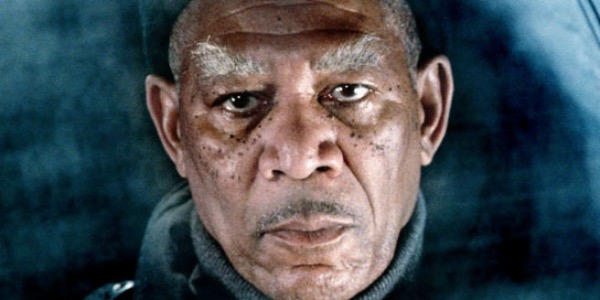
The Stand “Liar’s sit in chairs, Truth tellers just sort of… hunker down.”
Let’s get something straight first – this is my favorite King novel, and I desperately want this to be remade. Every time I seem to check on it, it’s in some sort of constant early state of production, never really progressing. Hopefully that changes someday!
I know, I know – The Stand is a four-part cheese-infested partial insult, but… it’s also somehow difficult for me to shake. There’s a lot of to be appreciated here, beneath the fluffy coating. So many of King‘s novels were made into mini-series, especially around this time, and generally on main networks (this was prior to HBO picking up the pace on limited series, and places like Netflix or Hulu) which put them at a disadvantage right away. No, of course we don’t need to have harder ratings, but it can make a difference.
The Stand is a huge endeavor of a novel, and it deserves a similarly attuned vessel to show this. The four part series from 1994 stars Gary Sinise, Molly Ringwald, Rob Lowe and Ruby Dee (among many others) and it’s still only a taste of what the novel offered. When Captain Trips (aka super flu, aka Randall Flagg) kills off most of the world’s population, the remaining survivors begin to have dreams about Mother Abigail (Dee) or Randall Flagg (Jamey Sheridan). It’s about good vs evil, about rebuilding the world after significant loss, and about these characters. There’s some bad dialogue, some honky musical choices, and laughable moments, but I still watch The Stand on a recurring basis. Plus, Sheridan as Flagg is worth seeing.
The Dark Half “What’s going on?”- “Murder… You want some?”
I’ve always had mixed feelings when it comes to The Dark Half. It’s difficult to take strenuous details from a novel and apply it to a feature film. This requires some things to be adjusted or left out completely. Timothy Hutton plays the dual roles of a writer who begins to see a physical manifestation of his pen name, the murderous George Stark. Much like the novella adaptation Secret Window, another writer who seems to lose his mind, The Dark Half has a strong lead portrayal, has an abundance of literary work to pull from, but still doesn’t quite hit its mark.
Also see Bag of Bones, based on the novel, directed by Mick Garris. Pierce Brosnan plays a writer who has lost his wife, goes back to their camp on the lake to write, and begins seeing things that aren’t there. He goes on a journey to unlock the mysteries of the small close-knit town. This mini-series can become snore-worthy at times, and a bit too “safe.”
Christine “Let me tell you a little something about love, Dennis. It has a voracious appetite. It eats everything.”
This film, based on the 1983 novel, about a teenage boy who purchases a possessed car, by all accounts shouldn’t be good. Its general premise is a bit out there, but the movie manages to be enjoyable. John Carpenter has a way of making even the weakest of movies watchable, and Christine is no exception. Keith Gordon plays Arnie Cunningham, a geek, struggling in high school. When he comes across Christine, things change for him – not just his looks, but his confidence. However, it’s also a tale of obsession. Christine is dangerous, and by extension so is Arnie, who becomes completely overtaken by it. The film has some scares, but it’s strength relies mostly in its psychological elements.
Unfortunate Misfires
I’m going to preface this by saying I could list a lot of films under this section, but I’m choosing not to. I’ll explain why these are my biggest disappointments. There are variables to consider like the time, budget, and outlet for each planned adaptation.
The Dark Tower “You can’t stop what’s coming. Death always wins.”
If you get through the seven-book series, and you loved it as much as I do, then you were undoubtedly disappointed with the film. For me, it wasn’t the casting or the effects, but the strange decision to combine elements of the varying novels into one movie that managed to glaze over everything substantial. In other words: it’s a mess.
The script is lackluster, barely leaving an impression, and the story manages to make these characters – these wonderfully unique characters – into something you’ve seen before. I will point out that Matthew McConaughey was a great choice, and I fully support him trying this character again (especially if they eventually adapt The Stand again).
Apparently there’s going to be a series made for Amazon. Here’s hoping it’ll pay off!
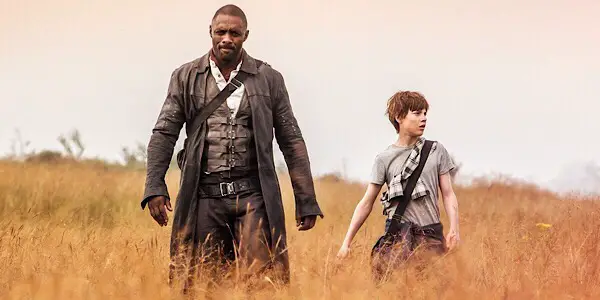
Needful Things “Everybody is insane. Everywhere.”
Every time I re-watch this movie I’m hoping it’ll end differently, or somehow be better than it is in my head. It’s not. Needful Things is a great novel (from 1991), with a large possible palette for adaptation glory, but it never gets off the ground. The town, Castle Rock, is having some troubles. Max von Sydow as Leland Gaunt shows up, and this new arrival and creep proprietor bewitches the inhabitants. He trades things with the townspeople, whether it be for objects or “favors,” and in truth – he enjoys the chaos that ensues from his direction. Local sheriff Alan Pangborn (Ed Harris) seems to be the only one catching onto his game, but it’s not an easy route to stop him. There’s some great casting choices, especially when it comes down to our hero and villain, however in its third act especially, the movie doesn’t reach its full potential.
Under The Dome “Chester’s Mill is a place like any other. At least, it used to be until we were cut off from the rest of the world by a mysterious dome.”
After a beginning to this series that brought hope, Under The Dome took a nose dive down. For a novel that’s hefty in both size and scope, this was one adaptation I was really excited for. Which makes it that much harder to swallow. If you’re looking at the first season alone, Under The Dome is terrific. I’ll be the first to admit that. If you only look at the first season it’s a success – there’s a good cast (Mike Vogel Rachelle Lefevre, Dean Norris to name a few), palpable suspense, and plenty of WTF moments.
But, as so many shows do, time wasn’t kind to it and in the second and third season the series became consumed by its oddness without providing an opportunity to remain credible. This was an amazing novel with a big cast of strange and intriguing people, trapped inside a dome in their Maine town. It provided a lot of interesting dynamics, being cut off from the world – wondering what the dome was – while also combating a variety of personalities all stuck together.
Which is why the eventual disappointment was so heartbreaking to me.
The Mist (Television Series) “A person who did a bad thing is not the worst to have around at the moment.”
After the movie, which as I said, I liked – was there more to explore? The Mist had an intriguing idea – what about the rest of the town? While the film was confined to the supermarket and the characters we meet there, the show would broaden that and gives us a new cast.
Regrettably, it failed to introduce anything compelling enough to fully satisfy fans (or even those who weren’t). While the selection of characters were all fascinating enough, the plot didn’t stick, and as a viewer your attention careened down. While not the worst adaptation I’ve seen, it was especially dispiriting because of the anticipation and because I watched the first few episodes hoping for great things.
It didn’t work out that way.
Tommy Knockers “Tommyknockers, tommyknockers, knocking on your door.”
Though King refers to this as his worst novel (I don’t necessarily agree, but there are areas of disarray), there’s still an opportunity for an engaging three hours. A chance that doesn’t work out.
It’s another adaptation that has the potential to be grand, but falls short. In the woods of this small Maine town, an extraterrestrial evil has been uncovered, emanating a green haze and a force that drains the health of its inhabitants but imbues them with an intelligence and aptitude for creation. Jimmy Smits, Jim ‘Gard’ Gardner a local poet and recovering alcoholic, is immune due to a metal plate in his head. Though his girlfriend, Bobbi (Marg Helgenberger) is not.
The idea of a town at odds with an unspeakable force isn’t a new one, but it provides the opening for a great story, and an even better miniseries. There’s another abundance of hokey dialogue and acting (at times) so bad that you want to laugh. Things spiral and we’re left with an uneven adaptation that only manages to be partially entertaining.
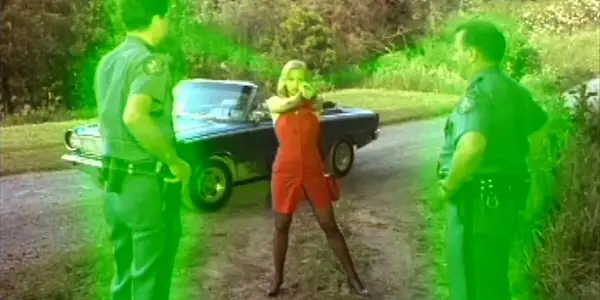
Desperation “I see you’re an organ donor. Are you sure that’s wise?”
Another Mick Garris directed TV movie that tackles a large novel (over 700 pages) with barely over two hours of screen time. Desperation begins with an admirable intent, capturing the tenacity of the novel with its opening moments. A sheriff pulls over a couple traveling across country. He brings them back to the station where several others are being held.
Animals sit on the side of the road, seemingly obeying him. He kills random travelers with no regard. An ancient evil, that had been buried down in an old mine, has resurfaced, claiming the townspeople. Some are consumed, including the officer played by Ron Pearlman, with equal parts humor and terror. Unfortunately, the large novel doesn’t get its due and the tension built fizzles out.
Still, there’s at least half of this movie that is worth consideration, and Pearlman is perfect. The rest of the cast, including Tom Skerritt, Steven Weber, and Annabeth Gish, try their best with what they’ve got, but flimsy attempts at nailing the story make it a limp final product.
Series That Stand Out
Mr. Mercedes “I know you’re in there cause hate hangs on, and hate is all you had.”
Original cop dramas, specifically ones that focus on one case for an entire season, are difficult to come by. Taking out of the equation that this is a King novel, Mr. Mercedes is a riveting police thriller about retired cop Bill Hodges (admirably crotchety Brenden Gleeson) who can’t let go of the case he never solved. The case is the Mr. Mercedes killer, played by Harry Treadaway remarkably, who also can’t seem to let go of Bill either. This cat and mouse story isn’t what you’d expect, and if you’re a fan of the trilogy (or completely unaware of them,) it’s worth checking out. Guess what? Season two is coming up in August, and we will be here to cover it!
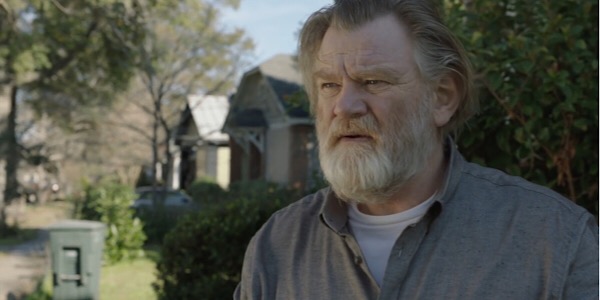
11/22/63 “You’ll need to blend in.”
11/22/63, the date referencing the death of JFK, is another one of my favorites of King’s novels. The premise, about a man who goes back in time to try to stop the Kennedy assassination, manages to combine so many genres and narratives seamlessly, it’s difficult not to love it.
With the Hulu miniseries, there are aspects missing, but you get the basic jist. Even some of the changes, like the creation of the character Bill (George MacKay), are sensible adjustments. I found James Franco and company to be compelling, and the 8-episode series to be completely captivating. Maybe it’s the science-fiction fan in me, or the great set and costume design, but 11/22/63 is worth a binge.
A Quick Round-up Of Some Of The Remaining Many
Rose Red (Craig R. Baxley) – written by King directly for TV. Fleeting ingenuity and areas of spooky remnants, but mostly an overlong exercise. There are some interesting plot points for a haunted house drama, specifically Nancy Travis hiring a group of psychics to “wake up” a dormant cell, but it’s not as tightly conceived as it could be.
Big Driver (Mikael Salomon, Michael Salomon)- Based on novella. A revenge thriller guaranteed to pass the time, but not inherently new, with Maria Bello giving a strong turn.
Creepshow (George A. Romero) – Two of the sections are based on two of his shorts. A dark comedy that in its entirety is quite entertaining. There’s some interesting tales (some more than others) with a great cast. Creepshow 2 (Michael Gornick) also has some additional pieces from King that will make you laugh/cringe, but not as good as the original.
Thinner (Tom Holland) – Based on the 1984 novel. This movie freaked me out when I was kid. When Billy, Robert John Burke, an overweight lawyer hits an elderly gypsy woman and gets away with it, he’s cursed. This makes him rapidly lose weight. The film makes some poor choices, becoming more of a joke than a horror.
A Good Marriage (Peter Askin) – Based on the novella. It features some great acting by Joan Allen and an intriguing plot. This is another (overall) flop, but there’s some understated eeriness, because it deals with the basic human horror of “what if you found out the person you shared your life with was a murderer?”
Riding The Bullet (Mick Garris) – Based on the novella. A college student picks up a hitchhiker (who is dead) as he drives to the hospital to visit his mother. It’s not a spectacle, but a very refined ghostly tale. The tale is about loss, guilt and psychological torment. In ways, it’s a beautifully haunting story, but its adaptation never fully envelops you the way King’s novella does. Starring Jonathan Jackson and David Arquette.
Cujo (Lewis Teague) – Based on 1981 novel. Everyone’s favorite rabies-ridden dog. It’s terrifying, sad, and features a fierce performance by Dee Wallace. While not without its issues, there are some disturbingly ferocious parts.
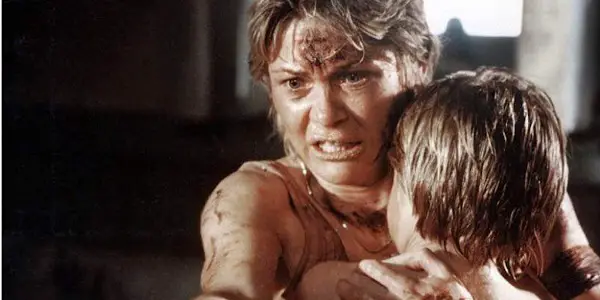
Cell (Tod Williams) – Based on the 2006 novel. Once upon a time, John Cusack and Samuel L Jackson being attached to a film would bring a level of genuine excitement. Now…? Not as much. Still, this movie, that feels like direct-to-dvd in every way one can, partially keeps the viewer’s attention by King’s zombie-like take, using our obsession with technology and turning it into horror. There are a few scenes that are reasonably heart-stopping, and it’s a story that feels a bit small, in comparison to some of its (somewhat) similar predecessors. Cell deserved better then this cliche adaptation.
The Graveyard Shift (Ralph S. Singleton) – Based on the short story. It’s got a giant rat, disgruntled employees, and poorly written dialogue. This film has its moments of gore and silly fun, but not enough.
The Running Man (Paul Michael Glaser) – Based on the 1982 novel. It’s a science-fiction frenzy that doesn’t take itself too seriously, and that’s okay. Starring Arnold Schwarzenegger in this futuristic tale (it’s actually supposed to be 2019) of a television series where people battle to the death. Actually entertaining.
The Dead Zone (David Cronenberg) – Considered to be one of the best, The Dead Zone is a David Cronenberg and Christopher Walken collaboration that’s a thriller about a man who wakes up from a coma with psychic abilities. Walken is terrific. Buyer beware: it’s quite engrossing.
Sometimes They Come Back (Tom McLoughlin) – Based on the short story. This is one snoozer that can be passed up on. Its sequels too.
The Langoliers (Tom Holland) – Based on the novella. Oh, how I wish this miniseries was better. I’m pretty sure that when this first aired and I watched it on TV, even then, I knew it was cheesy. The premise, about a group of passengers landing at an abandoned airport (after most of the passengers disappear) where everything is off and creatures are out to get them, desperately needs to be remade. It’s one of my favorite stories, but this adaptation doesn’t cut it.
Conclusion: So Many Wonderfully Screwed-up Stories
The truth is – this is only the beginning. King is a hot commodity in Hollywood, and there are a lot of stories that have not yet made it to the silver screen. There are also some ripe for a re-do. Last year’s It proved that a fresh new take can sometimes be just what we need. Chapter Two, which already has a lot of buzz with the star-studded cast is expected next year.
There’s also the sequel to The Shining, Doctor Sleep, which Ewan Mcgregor just signed on for. Last month we also got Castle Rock, a Hulu exclusive that is not based on a particular novel. Instead, it focuses on the fictional town that so many of his stories have touched on.
Excited? I am, and my first review of it is coming soon!
Any favorites I’m missing? Let us know in the comments below!
Castle Rock premiered on Hulu on July 25, 2018, and we’ll be here covering each episode!
Does content like this matter to you?
Become a Member and support film journalism. Unlock access to all of Film Inquiry`s great articles. Join a community of like-minded readers who are passionate about cinema - get access to our private members Network, give back to independent filmmakers, and more.
Kristy Strouse is the Owner/Editor in Chief of Film Inquiry, writer, podcaster, and all around film and TV fanatic. She's also VP of Genomic Operations at Katch Data and is a member of The Online Association of Female Film Critics and The Hollywood Creative Alliance. She also has a horror website: Wonderfully Weird & Horrifying.













